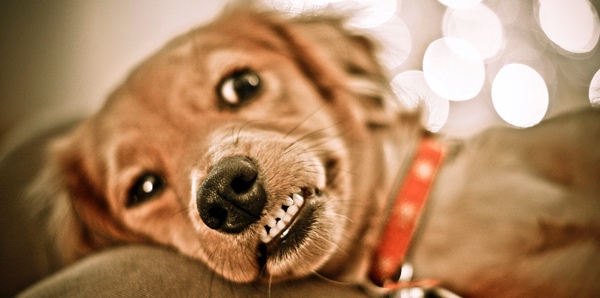Do retained baby teeth in dogs have to be pulled if they don’t fall out?
Original Question: My vet wants to pull out any baby teeth if they don't fall out by 6 months. I've never hear of this and this sounds like a cash grab. Is this the protocol for puppies? - Anonymous
 Mar 1, 2018
Mar 1, 2018
TRANSCRIPT:
I love hearing the honesty from people in their questions such as this one and I like addressing it because let’s face it, veterinary medicine is expensive and we really want to make sure that we trust our veterinarian and I think you can get a good sense of that with any professional that we go to in our lives.
Let’s get right into it, so dogs and cats are born with what are called deciduous teeth or baby teeth and they’re supposed to fall out by six months but there are a lot of breeds that really retain those teeth. In fact a lot of the brachycephalic breeds, the flat nose breeds, the small breed dogs, they will actually have their teeth very often retained. What will happen is that when the adult teeth start to come in and the baby teeth or deciduous teeth are retained, you’ll have kind of a double tooth there and it will put pressure on the adult tooth coming in and cause it to be placed improperly. The mouth won’t close and the teeth won’t intertwine or interact as well so stuff gets trapped in it significantly more often and it will really cause a big problem.
It’s pretty uncommon for the deciduous teeth to fall out if they haven’t fallen out by 6 months and I see lots of dogs aged 3 to 6 that still have their baby teeth. Retained baby teeth in dogs have lots of reactions around that area because so much stuff is getting trapped in there and if you address this problem later, it’s so much more expensive because you’re doing a full anesthetic just to remove those teeth. What we do at six months, which is usually the time when we neuter or spay and those procedures are usually pretty cheap compared to regular surgery, so when you add on taking out the baby teeth at that time it’s a lot less expensive than if you later have to do a full surgery purely for the purpose of teeth removal. Addressing it during the spay and neuter will be a lot cheaper than going forward and ending up having problems with those permanent, adult teeth coming in and being malpositioned and causing more reaction at the gum caused by the debris that gets caught between them.


Disclaimer: healthcareforpets.com and its team of veterinarians and clinicians do not endorse any products, services, or recommended advice. All advice presented by our veterinarians, clinicians, tools, resources, etc is not meant to replace a regular physical exam and consultation with your primary veterinarian or other clinicians. We always encourage you to seek medical advice from your regular veterinarian.

